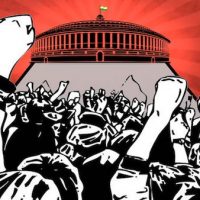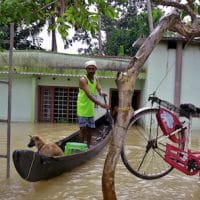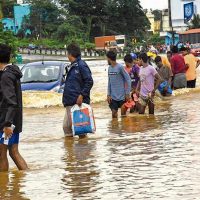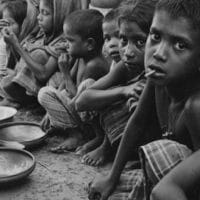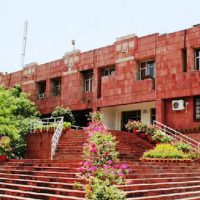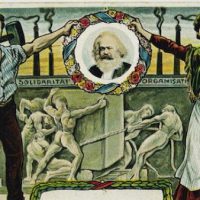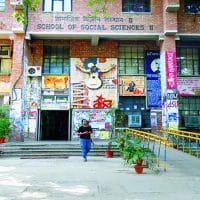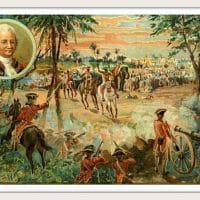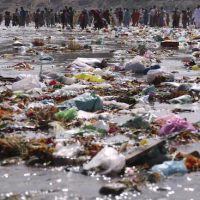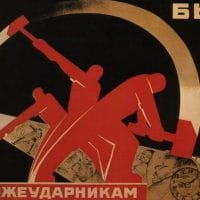-
The Indian economy in a tailspin
THE Indian economy is in a tailspin. This cannot be attributed only to innocence in economic matters of the command-centre of the NDA government. While that is indubitably a contributing factor, the current travails of the economy point to something deeper, namely the dead-end to which neo-liberalism has brought the economy.
-
‘Don’t worry, said father. Mother served the constables tea’
Sagar Abraham-Gonsalves writes about his clawing helplessness as his father, Vernon Gonsalves, was arrested on Tuesday in the Bhima-Koregaon case.
-
Why clubbing employment and work in India is misleading
This lack of distinction explains the decline in women’s workforce participation rates. The decline reflects a shift from paid to unpaid work.
-
What makes an Urban Naxal?
The Bharatiya Janata Party-led government and the Hindutvavadi “nationalist” movement’s demonic drive for cultural orthodoxy seems to know no bounds. What is alarming is the former’s support for and complicity in the acts of the latter, as also the Indian state’s control of its “necessary” enemies through the use of state terror, with the category “urban Naxals” singled out in the latest of such drives (in June and August 2018) that otherwise routinely target Muslims, militant oppressed nationalities, and “Maoists.”
-
For first time ever, workers, peasants, Agri workers to hold joint rally in Delhi against Modi regime
Massive Mazdoor Kisan Sangharsh Rally on September 5 to hit out at neoliberal economic policies, communal agenda, authoritarian attacks by the BJP government.
-
“These days shall also pass, like a thousand days have before them”
Since the extreme right-wing government of Bharatiya Janata Party (BJP) came to power in 2014, there has been an increasing crackdown on political and student activists, who are often branded as Maoists and anti-nationals.
-
In battling floods, Kerala is also forced to fight the hostility of the Indian government
THE communist-ruled Indian state of Kerala, hit by the most severe rains and floods in nearly a century, has had to overcome not just nature’s fury but also the active hostility of the central government in Delhi led by the far-right Bharatiya Janata Party (BJP).
-
Rise in extreme weather events in India raises concerns over climate change impact
An analysis by IMD researchers has indicated increased disaster potential for instant flooding over central India, where the intensity and frequency of heavy and very heavy rainfall have been increasing.
-
The war of hunger that afflicts the world’s poor
It is impossible to go anywhere in India without being confronted with the terrible enormity of hunger.
-
Office of renowned economists Prabhat Patnaik and Utsa Patnaik double-locked by JNU administration
The two retired professors are internationally reputed scholars, and are serving the honourary position of Professor Emeritus.
-
200 Years later, why Marx remains relevant in an Indian context
The year 2018 marks the bicentenary of Karl Marx, a philosopher and thinker who is partially understood without being read by his critics.
-
Karl Marx: India’s freedom struggle too was influenced by Marxism
Friedrich Engels, while informing a common friend about Marx’s death in March 1883, wrote “…mankind is shorter by a head, and the greatest head of our time at that”.
-
There is a structural crisis of capitalism
In this in-depth interview conducted in Dakar, Samir Amin speaks on a wide range of topics: globalisation; generalised monopoly capital; the alarming growth of inequality; the role of the state in the neoliberal era; globalisation and delinking; capitalism and modernity; the return of fascism in the contemporary capitalist world, and more.
-
Ashok Mitra: the doyen among Left intellectuals in India
Ashok Mitra who passed away on May1, 2018, was the doyen among Left intellectuals in the country, held in the highest esteem by one and all for his absolute integrity, his outstanding intellect and his commitment to the cause of the working people.
-
Recast(e)ing the model minority: Behind right wing Hindu politics in the U.S.
Indian Americans’ susceptibility to conservative politics in the U.S. is itself a contradictory affair—on the one hand they have largely voted Democrat, but have publicly remained ambivalent about racial politics in the country. One key element of this ambivalence is the question of affirmative action and meritocracy.
-
Enclosed thinking
In a slave society, one can argue, the interest of the slaves lies in keeping the slave owner happy, for otherwise he is likely to flog and whip them mercilessly which would cause them great agony. Likewise in a caste society, one can argue, the interest of the Dalit lies in being as inconspicuous as possible, in not ‘polluting’ the upper castes through his presence, for otherwise he is likely to be beaten and lynched.
-
Marx on imperialism
On February 19, 1881, Karl Marx had written a remarkable letter to N.F. Danielson, the renowned Narodnik economist who had also gone under the name of Nikolayon and whose work had been much discussed by Lenin.
-
Imperialism is suffocating India
More than a month ago we published an article detailing some of the fallout of the ecological crisis in the Third World. The article detailed a study published by “greenpeace” that had shown figures projecting 1.2 million deaths in India every year due to air pollution-related conditions.
-
Writing while socialist
With each workshop the broad outlines of socialist writing become clear to me. I am now able to better distinguish between capitalist writing—which typically emerges from the liberal, mainstream media and is intended to produce commodities—and socialist writing—which is intended to produce a confident community of struggle.
-
Bernard D’Mello on revolution in the global south
From the time of independence in 1947, India has had the resources and the potential to achieve a high level of human development—yet the great majority of the country’s people have remained desperately poor.





